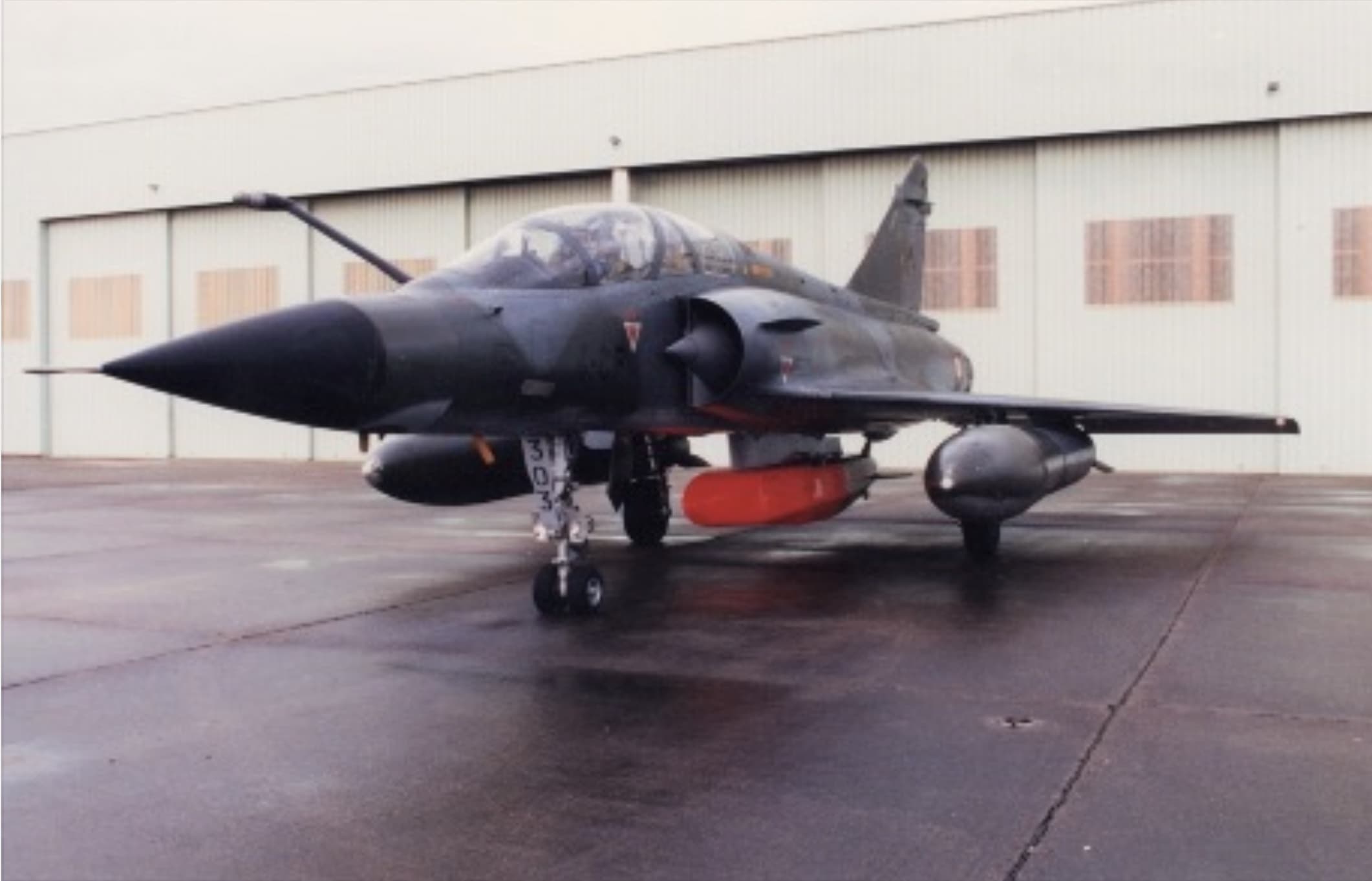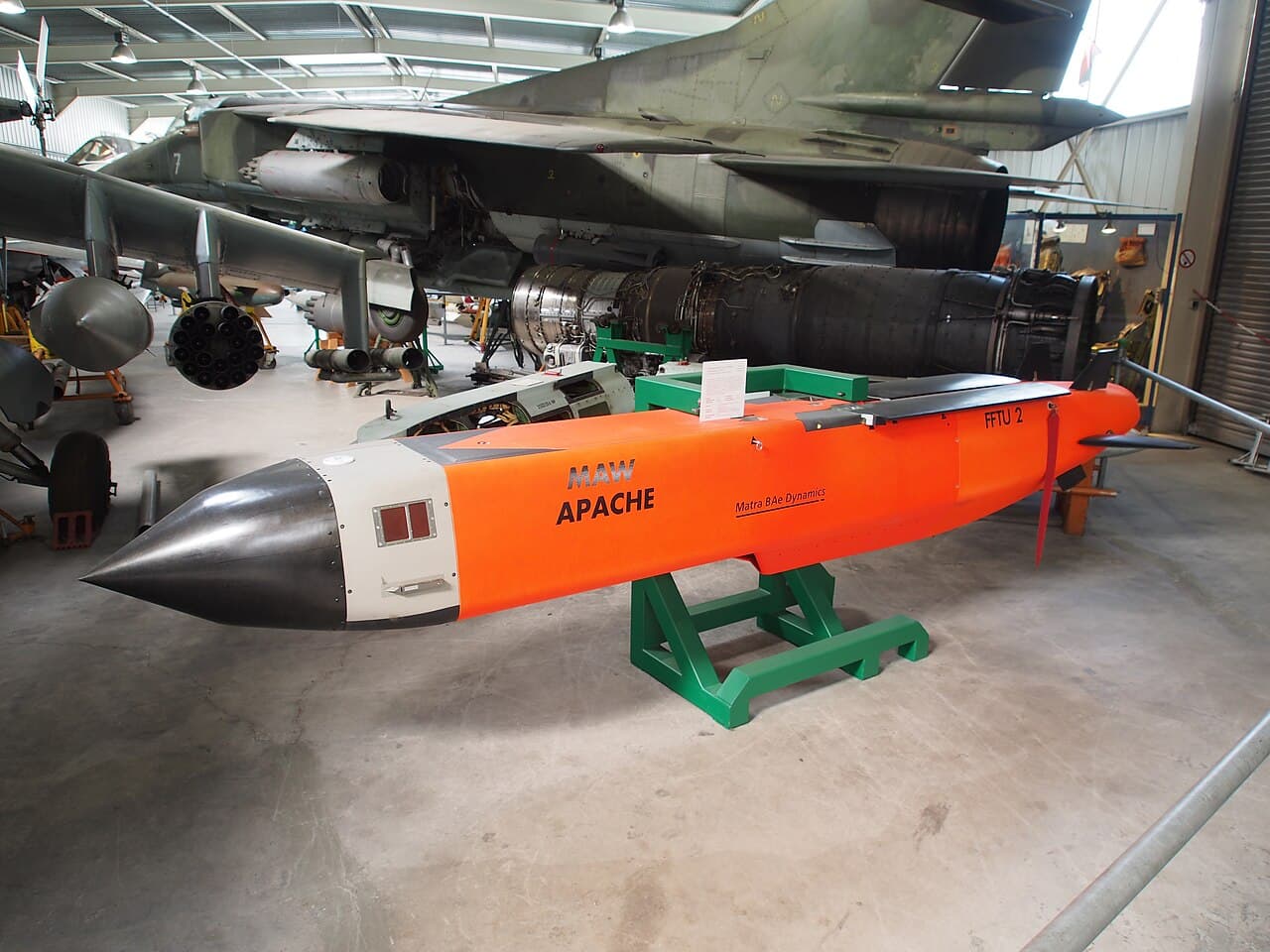- Yes
- No
Welcome to this new suggestion.
Today I present to you the Apache anti-runway missile.
The APACHE missile (acronym for Arme Planante à Charges Ejectables) is an anti-runway missile developed by Matra and introduced into service with the French armed forces in the early 2000s. Although the missile is better known, its infrastructure-destroying version, the SCALP EG missile, is much more famous.
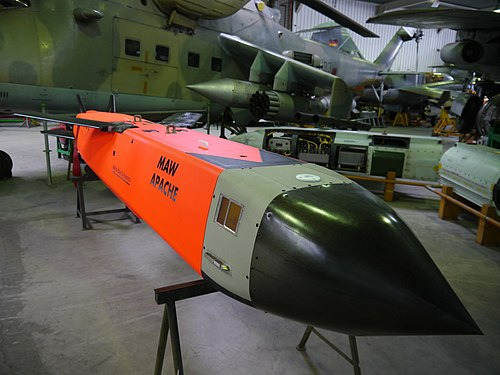
History
During the 1980s, Matra and Messerschmitt collaborated to design an anti-runway weapon capable of reaching its target without endangering the launching aircraft. To achieve this, a gliding weapon was initially considered, allowing the operator to strike from a safe distance. However, the range remained insufficient due to the rapid advancement of anti-aircraft defense systems. As a result, the decision was made in 1986 to integrate a turbojet engine into the weapon, significantly increasing its operational range. Pleased with the technical progress, the companies projected a potential commissioning in 1995. Subsequently, the French Ministry of Defense signed a development contract in 1989 for the production of the weapon.
While the original French order was for 500 missiles, the 1997-2002 military planning law reduced the number to 100 units, which were delivered between 2001 and 2004, for a total cost of approximately €630 million. The Luftwaffe, although at one time interested in the missile for integration under the Tornado and having confirmed a purchase in 1992, canceled its purchase decision and received none.
In France, the APACHE was the last cluster munition in service, remaining in service until 2009, when it was mothballed. The APACHE was never used in combat during its operational history.
Characteristic
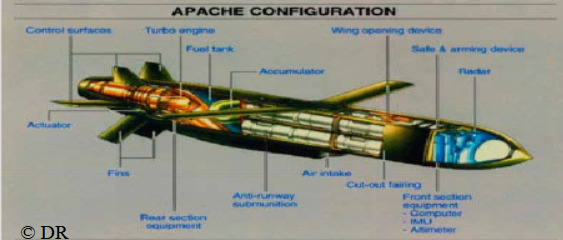

Length : 5.1 m
Width : 630 mm
Wingspan : 2.85 m
Weight : 1230 kg (launch mass, the missile carries 60L of fuel to power its engine during flight)
Range : 140 km
Engine : Microturbo TRI-60-30 engine
Speed : 1000 km/h
Payload : 10 x KRISS sub munition
KRISS
The KRISS submunition uses the same operating principle as the anti-runway munitions previously manufactured by Matra/MBDA. The 50kg bomb is first slowed by a parachute, causing it to tilt vertically toward the runway. A booster is then activated, propelling the bomb through the concrete of the runway, where it explodes to inflict maximum damage. The explosive charge used is in the form of a shaped charge.
The booster allows the bomb to reach 400m/s in 0.25 seconds, allowing it to penetrate thick layers (40cm of concrete, 50cm of sand, and 30cm of compacted layer), thus causing maximum damage to the targeted runway.
The ammunition has a 95% reliability rate and has a self-destruction system in case of explosion failure.
Use
The APACHE missile is divided into 3 sections, each serving to accomplish the given task. The warhead of the missile contains the guidance part, the missile, although guided by GPS coordinates has a millimeter radar used to position itself relative to the terrain during flight. The central part is the compartment of the sub-munitions used to damage the targeted runway and the rear part contains the engine allowing the missile to stay in flight as well as the 60L of fuel powering it.
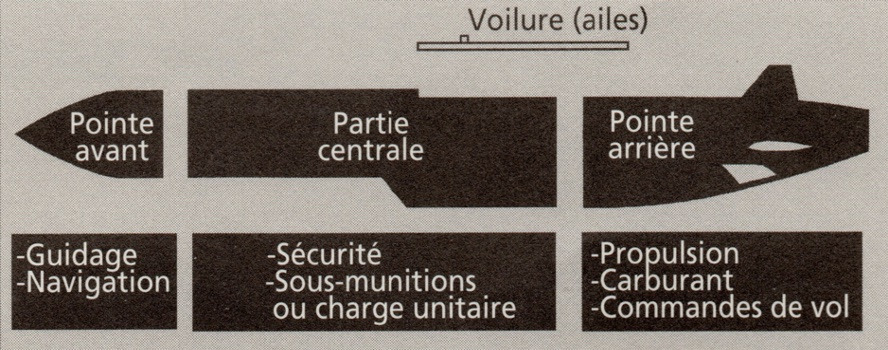
Once released by the carrier aircraft, the missile orients itself towards the GPS coordinates previously entered into its navigation system. Using its terrain-following radar, the missile positions itself at an altitude of 150 meters during the flight at a maximum speed of 1000 km/h. Arriving close to its target, the bomb descends to an altitude of 50 m in order to evade the anti-aircraft defense system and reach the optimal altitude for dropping the munitions. Arriving above the target, the side walls detach to allow the progressive release of the KRISS submunitions.
However, the missile is not extremely precise, the accuracy is estimated at around 50 to 100m, which explains the use of KRISS sub-munitions and not a standard explosive charge.
In-game, this ammunition could be added under the Mirage 2000D and Rafales and could be an interesting addition as an anti-airfield cruise missile. This would bring a new style of ammunition to the game and diversity to the gameplay. Overall, this weapon would not be particularly problematic, as it would not make the planes using it much more powerful.
